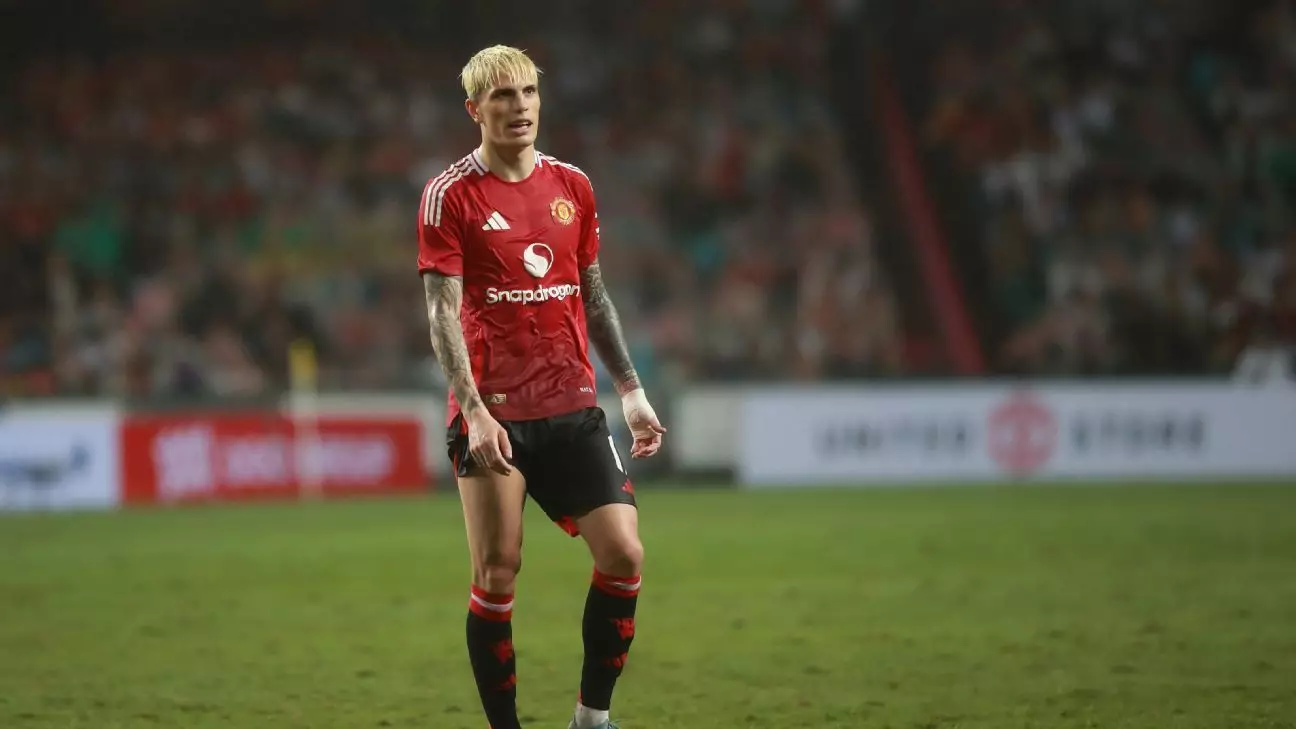Manchester United’s recent transfer strategy underscores a vital truth about modern football management: adaptability is crucial amidst an unpredictable transfer market. Rather than rigidly insisting on a fully-assembled squad before the season’s start, the club’s approach emphasizes patience and confidence in internal talent, signaling a shift from typical player acquisition methods. Ruben Amorim’s candid declaration that some players might remain at Manchester United if transfer deals fall through demonstrates a resilience that many clubs overlook. It reflects a mindset that values internal development and managerial flexibility, recognizing that sometimes the best class of players are those already within the squad.
This philosophy, while controversial to purists who favor aggressive transfer windows, reveals a deeper insight into squad cohesion. Now more than ever, a team’s success hinges on how well its existing members can adapt and elevate their performance. By openly communicating that certain players like Garnacho, Antony, Sancho, and Malacia could stay regardless of transfer deadlines, United is strategically fostering a culture of patience, growth, and internal competition. This is a gamble that, if managed well, can lead to a more united and motivated squad, ready to overcome the chaos often associated with transfer periods.
Turning Challenges into Opportunities: The Power of Internal Competition
Amorim’s focus on internal competition is a remarkable lesson in leadership. Instead of viewing the squad’s current uncertainties as setbacks, he frames them as opportunities for growth. By allowing players to contemplate their futures—some seeking new challenges and others waiting for the right deal—he emphasizes the importance of motivation and professional pride. Such an approach can stimulate a competitive environment where players push themselves harder, aiming to secure their place in the team.
The emphasis on players fighting for their spot, especially when World Cup qualification hangs in the balance, encapsulates a forward-thinking strategy. This drive for high performance amid uncertainty can ignite a fierce professional ethic that translates into better results on the pitch. It also signifies a shift in leadership style—less about rigid planning, more about empowering individuals to make strategic decisions about their careers, which can ultimately culminate in a more resilient and versatile team dynamic.
Strategic Patience in a Fast-Paced Market
Manchester United’s current stance underscores a crucial lesson in strategic patience. While other clubs may rush to finalize signings, Arsenal or Chelsea style, United’s leadership demonstrates that sometimes waiting pays off. The club’s openness to start the season with the current squad, including promising talents like Rasmus Hojlund and Josh Zirkzee, reveals a confidence that internal resources can be sufficient if nurtured correctly.
This attitude counters the often-hysterical narratives about immediate success, illustrating that building a sustainable, cohesive team can take precedence over quick fixes. The inclusion of newcomers like Matheus Cunha and Bryan Mbeumo, who chose United despite other high-profile options, also signals a belief in the club’s long-term vision. Being selective and patient, rather than desperate, can cultivate a stronger, more unified squad, ready to respond collectively rather than rely solely on high-profile signings.
Reimagining Leadership in Modern Football
Ruben Amorim’s transparent communication style and confidence in internal options challenge traditional notions of managerial control. His willingness to accept the possibility of a squad composed of existing members, combined with his openness about transfers, exemplifies authentic leadership rooted in strategic flexibility. This approach fosters an environment where players feel valued and trusted, which can boost morale and performance.
Furthermore, his emphasis on internal competition aligns with a broader vision of resilience—preparing the squad to thrive amid adversity. When leadership demonstrates unwavering belief in its current players, it creates a sense of stability that can resonate throughout the entire club. United’s stance invigorates a culture of self-reliance and strategic patience, inspiring other clubs to reconsider their high-stakes, short-term signing strategies.
Choosing to view uncertainty as an opportunity rather than a setback highlights a transformative perspective that separates truly resilient teams from mediocre ones. Manchester United’s current philosophy offers a blueprint for navigating the turbulence of modern football with confidence, strategic patience, and a focus on internal growth. This approach may not guarantee immediate results, but it establishes a foundation for sustainable success rooted in resilience and adaptability.

